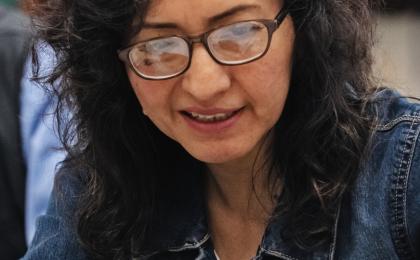Courses to help you interpret for your community
Put your language skills to use and discover how to become a community interpreter in your area. If you are wondering “what is a community interpreter?” or “what interpreting qualifications do I need? Then read on.
Community interpreting helps people - by translating when they cannot understand enough English to engage with public services. It can be a paid job or volunteer role, using bilingual language skills to help others.
Giving others a voice
You’ll give a voice to other people in your local area and help them access vital public services. You’ll make a difference to other people’s lives and help them when they need it the most. In addition, you’ll open up the opportunity for paid work.
Language skills are important, but there is much more to it. It’s not just about being fluent in English and another language. It is about understanding the public services involved and knowing how to deal with cultural sensitivities.
Interpreting in your local community
To help you become a community interpreter, we offer a range of courses. From short introductions to the role to longer, community interpreting qualifications. Our short, taster classes give you an insight into the work of an interpreter and what skills you will need to translate for others.
Becoming a qualified interpreter
To become a qualified interpreter and start working in paid roles, you’ll need to work towards a level 3 certificate in community interpreting. From the first steps, to your final qualification, the WEA will be with you every step of the way.
How much will it cost to train? We offer free or part-funded courses to help you reach your goals.
During the application process, we’ll ask you to complete a few simple tasks and talk about your experience, to ensure you start at the right place.
